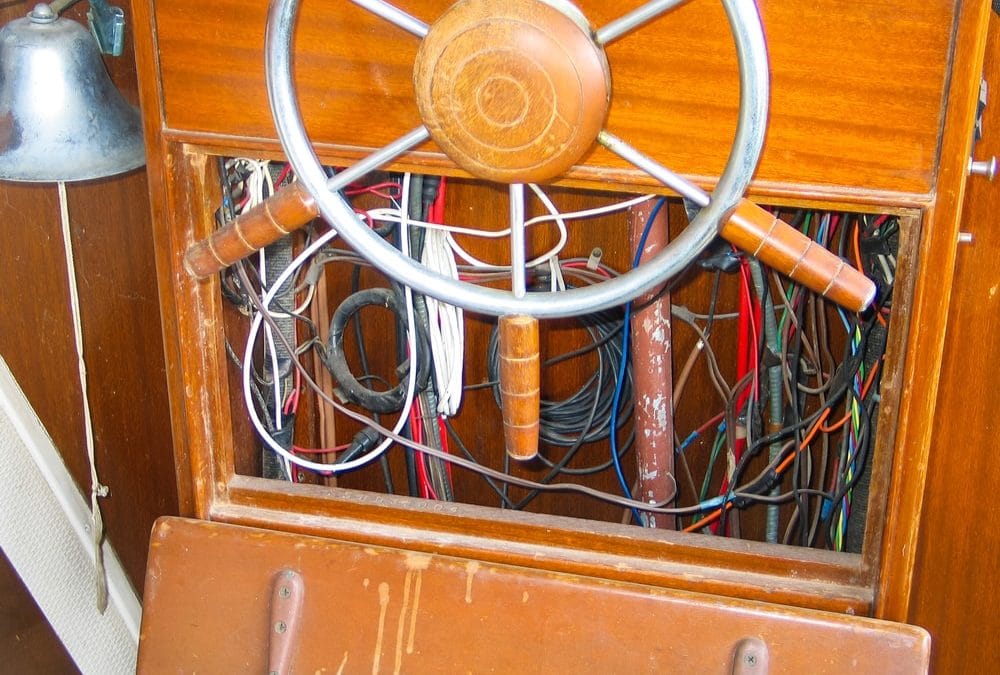Sailing the open seas is an unforgettable experience and one full of lifelong memories. But from defunct programmable logic controllers (PLC) to failed system communications, there are several electrical mishaps that can turn your yachting experience into a nightmare. At Fine Line Marine Electric, ensuring your safety is a top priority, which is why we compiled a list of things you can do to prevent an electrical catastrophe.
1. Know How to Troubleshoot
Whether you’re updating your PLC system or purchasing your first yacht, it’s important that you know, how to troubleshoot your system. Marine electric engineers create a troubleshooting interface that allows you to track potential electrical malfunctions. If you run into a system malfunction while yachting, skipping prevents you from isolating the problem.
2. Follow Recommended Wiring Standards
Depending on your marine electrical system, it’s recommended to limit your connection point to three wires maximum. It is also important to space out your electrical components by using subpanels or circuit breakers. This prevents overheating wires or stressed electrical compartments that can cause fires or short your programmable logic controllers (PLC).
3. Keep All Electrical Components Away From Water
It’s no secret that the words ‘water’ and ‘electricity’ never belong in the same sentence. One of the common mishaps is water infiltrating electrical compartments. During your dock inspection, look for signs of water damage or leaks around the seams of your yacht. In addition, prohibit food and beverages in and around control panels and circuit breakers to prevent electrical damage.
4. Invest in Plastic Covers
Your yacht’s battery is the lifeline of your watercraft. If it isn’t protected during and after a charter, it can do major damage to the terminals and the battery itself. Using plastic covers can prevent accidental damage from contact with metal objects, water, or a dropped tool. When you request Marine electric services, be sure to ask your engineer which plastic covers on the market would work best.
5. Inspect Your Wires and Cables
Your wires and cables are the communication pipeline from the programmable logic controllers (PLC) to your various electrical systems. Before leaving the dock, be sure to inspect all of your cables and wires to ensure that they are in good shape. Look for things such as loose connections, signs of fraying or tampering, and burnt surfaces or spots. This preventive measure is essential and can prevent boat fires or complete system malfunctions.
6. Secure Your Wires and Cables
From a desk fan to a complex navigation system, it’s natural you will have free-falling wires and cables. However, messy wiring can cause damage and lead to preventable shortages. During your dock inspection, secure loose wires and cables using heavy duty cable ties or electrical tape. If you have extra amenities such as televisions or USB ports, be sure to inspect and secure the wires, plugs, and cables.
7. Shut Everything Down
An important part of caring for your yacht is preventing stress on your programmable logic control (PLC) and other system components. During your rest periods, shut down your electrical ports, such as the circuit breaker panel, and turn off your battery switch. This process will keep your electrical system in top shape and allow your Marine electrical engineer to perform the highest quality of maintenance.
8. Complete Routine Maintenance
Yacht inspection is an important part of ensuring that everything is in tiptop shape for your next charter. Completing routine maintenance is essential to the process and a great way to catch any misfires with your electrical system. Before each charter season, make your Marine electrical engineer a part of your maintenance schedule.
Let Fine Line Marine Electric Help
For over 15 years, Fine Line Marine Electric has helped clients prepare to set sail on the open waters. Our team of highly qualified engineers specializes in Marine electrical services for small and mega yachts. Let us help you keep your electrical components in shape for your next charter. For more information or to schedule a consultation, give us a call.

Recent Comments